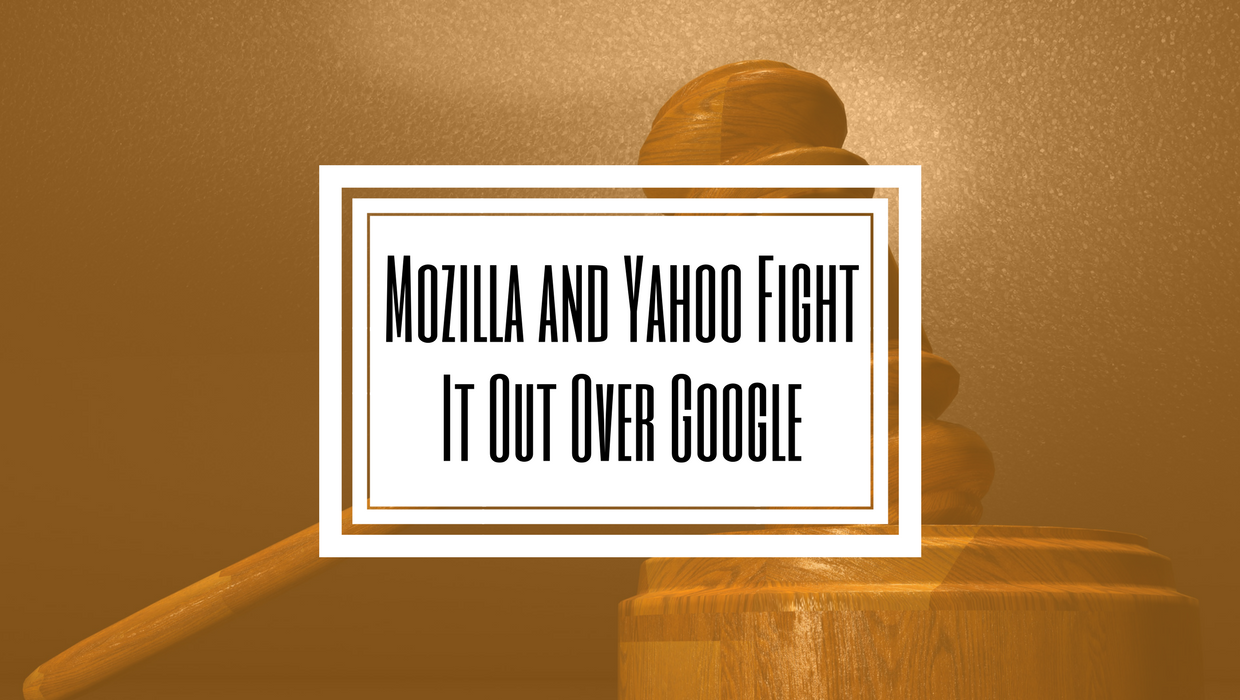About three years ago Mozilla Firefox made the stunning announcement that they were giving Google the boot and making Yahoo their default browser. It was a five-year partnership deal that was meant to breath life back into the already faltering browser. But that was 2014, and Yahoo was a different company back then. Now it’s Yahoo that’s faltering and Mozilla has cut ties breaking their agreement.
Back Then
The deal was struck back in 2014 and was seen as one of the biggest successes by former Yahoo CEO Marissa Mayer. It was a different time back then. Obama was in office, not Trump. We were still on the 6th generation of the iPhone.
But even back then things weren’t rosy. While the deal was beneficial to both Mozilla and Yahoo, both of those companies were facing low market share. Yahoo hovered around 3% while Firefox was around 11-12%. The deal was struck in the hopes that these two fading powerhouses could breathe life back into each other.
Today
As most people probably know, simply based on their own usage habits, the plan failed. Google Chrome has dominated the Internet browser market, with Google being the top search engine. In an attempt to recapture the lost market, Mozilla recently released a much-improved Firefox Quantum browser last month. The kicker- Google was now the default search provider, not Yahoo.
Lawsuits
Yahoo’s parent company, Oath (Verizon) is now suing Mozilla for a breach of contract. Yahoo claims that Mozilla “terminated a long-term strategic agreement with Yahoo” on November 10th. Yahoo also states they discussed this with Mozilla before going forward with its suit. In the lawsuit, Oath seeks an unspecified amount of money for damages and interest from Mozilla.
But it won’t be that easy. Mozilla has since spoken out about the termination, claiming it had the right to under the contract:
“We recently exercised our contractual right to terminate our agreement with Yahoo based on a number of factors including doing what’s best for our brand, our effort to provide quality web search, and the broader content experience for our users.
Immediately following Yahoo’s acquisition, we undertook a lengthy, multi-month process to seek assurances from Yahoo and its acquirers with respect to those factors. When it became clear that continuing to use Yahoo as our default search provider would have a negative impact on all of the above, we exercised our contractual right to terminate the agreement and entered into an agreement with another provider.”
Mozilla is essentially calling out Yahoo for their failure at upholding search quality and online usage that were promised to be maintained at the time of the initial agreement. Further excerpts show some more interesting allegations Mozilla has:
“Yahoo Search consistently failed to retain users and search volume over time, reducing the potential revenue [for Mozilla] under the Strategic Agreement. Rather than focus on improving the quality of its search product, as Yahoo assured Mozilla it would prior to entering into the deal, Yahoo continually focused on short-term monetization and special events such as the Olympics and the election, at the expense of product quality . . .
These issues began early in the relationship. As early as January 2015, Mozilla began discussions with Yahoo on the shortcomings of the quality of the search product . . . Mozilla determined in January 2015 that the user experience Yahoo Search provided was sub-par [and] identified “five areas I’d like to push Yahoo! on of the next few weeks.” … In no particular order, these issues affecting search quality included the relevancy of advertisements served on users, aggressive autocorrect, sub-par relevancy results, the content of answers, and the basis for triggering particular content.
Mozilla continued these types of discussions with Yahoo in March 2015, reiterating that Mozilla “wants improvement for both parties to grow market share,” but the “current experience is causing users to move.”
The Claims
The statements make it clear what each company is claiming. Mozilla attributes Firefox’s lost market share to Chrome, at least in part, to Yahoo search. But Yahoo has their own claims. It seems likely that Oath will claim that it isn’t Yahoo to blame, but rather Firefox’s browser experience issues like speed and performance.
Conclusion
The truth likely lies somewhere in between. While Yahoo and Firefox once dominated the market share in their industries, that was already greatly diminished by the time the two partnered. It always seemed like a dream that two fading stars could pull together to shine again, and it seems with Mozilla’s latest move that they’ve given up trying that method.
Perhaps the lawsuits will make everything clearer. We for one, are slightly excited to see what Mozilla can do without the weight of Yahoo strangling it, although if they have any success with their updated browser axing Yahoo isn’t likely the only reason for it.

